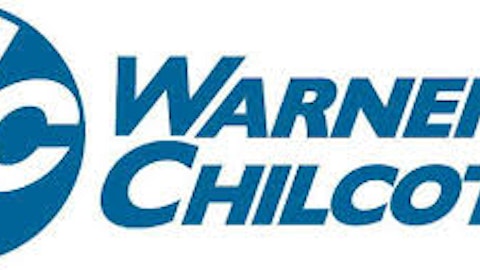United Therapeutics Corporation (NASDAQ:UTHR) shareholders have witnessed a decrease in hedge fund interest of late.

Just as important, optimistic insider trading activity is another way to break down the marketplace. As the old adage goes: there are many stimuli for an upper level exec to downsize shares of his or her company, but only one, very clear reason why they would initiate a purchase. Several academic studies have demonstrated the impressive potential of this tactic if piggybackers understand what to do (learn more here).
Keeping this in mind, we’re going to take a glance at the key action surrounding United Therapeutics Corporation (NASDAQ:UTHR).
What have hedge funds been doing with United Therapeutics Corporation (NASDAQ:UTHR)?
In preparation for this quarter, a total of 13 of the hedge funds we track were long in this stock, a change of -24% from the previous quarter. With hedgies’ capital changing hands, there exists an “upper tier” of noteworthy hedge fund managers who were upping their stakes meaningfully.
Of the funds we track, Sectoral Asset Management, managed by Jerome Pfund and Michael Sjostrom, holds the most valuable position in United Therapeutics Corporation (NASDAQ:UTHR). Sectoral Asset Management has a $72.1 million position in the stock, comprising 2.2% of its 13F portfolio. Sitting at the No. 2 spot is Palo Alto Investors, managed by William Leland Edwards, which held a $54.6 million position; the fund has 6.5% of its 13F portfolio invested in the stock. Remaining hedge funds with similar optimism include Jim Simons’s Renaissance Technologies, Peter Rathjens, Bruce Clarke and John Campbell’s Arrowstreet Capital and Joel Greenblatt’s Gotham Asset Management.
Because United Therapeutics Corporation (NASDAQ:UTHR) has witnessed falling interest from the smart money, we can see that there is a sect of hedgies who sold off their entire stakes at the end of the first quarter. At the top of the heap, Matt Sirovich and Jeremy Mindich’s Scopia Capital dropped the biggest stake of the 450+ funds we monitor, valued at close to $33.2 million in stock., and Daniel Arbess of Xerion was right behind this move, as the fund dumped about $8.8 million worth. These bearish behaviors are important to note, as aggregate hedge fund interest was cut by 4 funds at the end of the first quarter.
How have insiders been trading United Therapeutics Corporation (NASDAQ:UTHR)?
Insider purchases made by high-level executives is particularly usable when the primary stock in question has seen transactions within the past six months. Over the latest half-year time period, United Therapeutics Corporation (NASDAQ:UTHR) has experienced 1 unique insiders buying, and 7 insider sales (see the details of insider trades here).
Let’s also review hedge fund and insider activity in other stocks similar to United Therapeutics Corporation (NASDAQ:UTHR). These stocks are The Medicines Company (NASDAQ:MDCO), Taro Pharmaceutical Industries Ltd. (NYSE:TARO), Endo Health Solutions Inc (NASDAQ:ENDP), Warner Chilcott Plc (NASDAQ:WCRX), and Cubist Pharmaceuticals Inc (NASDAQ:CBST). All of these stocks are in the drug manufacturers – other industry and their market caps resemble UTHR’s market cap.


